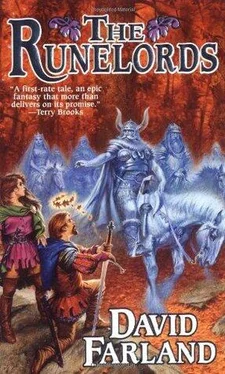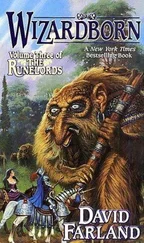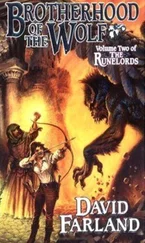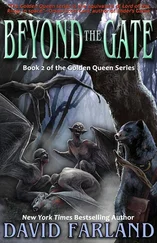David Farland - The Sum of All Men
Здесь есть возможность читать онлайн «David Farland - The Sum of All Men» весь текст электронной книги совершенно бесплатно (целиком полную версию без сокращений). В некоторых случаях можно слушать аудио, скачать через торрент в формате fb2 и присутствует краткое содержание. Жанр: Фэнтези, на английском языке. Описание произведения, (предисловие) а так же отзывы посетителей доступны на портале библиотеки ЛибКат.
- Название:The Sum of All Men
- Автор:
- Жанр:
- Год:неизвестен
- ISBN:нет данных
- Рейтинг книги:3 / 5. Голосов: 1
-
Избранное:Добавить в избранное
- Отзывы:
-
Ваша оценка:
- 60
- 1
- 2
- 3
- 4
- 5
The Sum of All Men: краткое содержание, описание и аннотация
Предлагаем к чтению аннотацию, описание, краткое содержание или предисловие (зависит от того, что написал сам автор книги «The Sum of All Men»). Если вы не нашли необходимую информацию о книге — напишите в комментариях, мы постараемся отыскать её.
The Sum of All Men — читать онлайн бесплатно полную книгу (весь текст) целиком
Ниже представлен текст книги, разбитый по страницам. Система сохранения места последней прочитанной страницы, позволяет с удобством читать онлайн бесплатно книгу «The Sum of All Men», без необходимости каждый раз заново искать на чём Вы остановились. Поставьте закладку, и сможете в любой момент перейти на страницу, на которой закончили чтение.
Интервал:
Закладка:
The Sum of All Men
David Farland
I
1
It Begins in Darkness
Effigies of the Earth King festooned the city around Castle Sylvarresta. Everywhere the effigies could be seen—hanging beneath shopwindows, standing upright against the walls of the city gates, or nailed beside doorways—stationed any place where the Earth King might find ingress into a home.
Many of the figures were crude things crafted by children—a few reeds twisted into the form of a man, often with a crown of oak leaves in its hair. But outside the doors of shops and taverns were more ornate figures of wood, the full size of a man, often elaborately painted and coifed in fine green wool traveling robes.
In those days, it was said that on Hostenfest Eve the spirit of the earth would fill the effigies and the Earth King would waken. At his wakening, he would protect the family for another season and help bear the harvest home.
It was a festive season, a season of joy. On Hostenfest Eve the father in a home would play the role of Earth King by setting gifts before the hearth. Thus, at dawn on the first day of Hostenfest, adults received flasks of new wine or kegs of stout ale. For the young girls the Earth King brought toy dolls woven of straw and wildflowers, while boys might get swords or oxcarts carved from ash.
All these bounties delivered by the Earth King represented but a token of the Earth King's wealth—the vast hoards of the “fruits of the forest and of the field” which legend said he bestowed on those who loved the land.
So the homes and shops around the castle were well adorned that night, on the nineteenth day of the Month of Harvest, four days before Hostenfest. All the shops were clean and well stocked for the autumn fair that would shortly come.
The streets lay barren, for dawn was approaching. Aside from the city guards and a few nursing mothers, the only ones who had reason to be up so late of the night were the King's bakers, who at that very moment were drawing the foam off the King's ale and mixing it with their dough so that the loaves would rise by dawn. True, the eels were running on their annual migration in the River Wye, so one might imagine a few fishermen to be out by night, but the fishermen had emptied their wicker eel traps an hour past midnight and had delivered kegs of live eels to the butcher for skinning and salting well before the second watch.
Outside the city walls, the greens south of Castle Sylvarresta were dotted with dark pavilions, for caravans from Indhopal had come north to sell the harvest of summer spices. The camps outside the castle were quiet but for the occasional braying of a donkey.
The walls of the city were shut, and all foreigners had been escorted from the merchants' quarter hours ago. No men moved on the streets at that time of night—only a few ferrin.
Thus there was no one to see what transpired in a dark alley. Even the King's far-seer, who had endowments of sight from seven people and stood guard on the old graak's aerie above the Dedicates' Keep, could not have spotted movement down in the narrow streets of the merchants' quarter.
But in Cat's Alley, just off the Butterwalk, two men struggled in the shadows for control of a knife.
Could you have seen them, you might have been reminded of tarantulas in battle: arms and legs twisting in frenzy as the knife flashed upward, scuffling as feet groped for purchase on the worn cobblestones, both men grunting and straining with deadly intent.
Both men were dressed in black. Sergeant Dreys of the King's Guard wore black livery embroidered with the silver boar of House Sylvarresta. Dreys' assailant wore a baggy black cotton burnoose in a style favored by assassins out of Muyyatin.
Though Sergeant Dreys outweighed the assassin by fifty pounds, and though Dreys had endowments of brawn from three men and could easily lift six hundred pounds over his head, he feared he could not win this battle.
Only starlight lit the street, and precious little of that made its way here into Cat's Alley. The alley was barely seven feet wide, and homes here stood three stories tall, leaning on sagging foundations till the awnings of their roofs nearly met a few yards above Dreys' head.
Dreys could hardly see a damned thing back here. All he could make out of his assailant was the gleam of the man's eyes and teeth, a pearl ring in his left nostril, the flash of the knife. The smell of woodlands clung to his cotton tunic as fiercely as the scents of anise and curry held to his breath.
No, Dreys was not prepared to fight here in Cat's Alley. He had no weapons and wore only the linen surcoat that normally fit over his ring mail, along with pants and boots. One does not go armed and armored to meet his lover.
He'd only stepped into the alley a moment ago, to make certain the road ahead was clear of city guards, when he heard a small scuffling behind a stack of yellow gourds by one of the market stalls. Dreys had thought he'd disturbed a ferrin as it hunted for mice or for some bit of cloth to wear. He'd turned, expecting to see a pudgy rat-shaped creature run for cover, when the assassin sprang from the shadows.
Now the assassin moved swiftly, grasping the knife tight, shifting his weight, twisting the blade. It flashed dangerously close to Dreys' ear, but the sergeant fought it off—till the man's arm snaked around, stabbing at Dreys' throat. Dreys managed to hold the smaller man's wrist back for a moment. “Murder. Bloody murder!” Dreys shouted.
A spy! he thought. I've caught a spy! He could only imagine that he'd disturbed the fellow in mapping out the castle grounds.
He thrust a knee into the assassin's groin, lifting the man in the air. Pulled the man's knife arm full length and tried to twist it.
The assassin let go of the knife with one hand and rabbit-punched Dreys in the chest.
Dreys' ribs snapped. Obviously the little man had also been branded with runes of power. Dreys guessed that the assassin had the brawn of five men, maybe more. Though both men were incredibly strong, endowments of brawn increased strength only to the muscles and tendons. They did not invest one's bones with any superior hardness. So this match was quickly degenerating into what Dreys would call “a bone-bash.”
He struggled to hold the assassin's wrists. For a long moment they wrestled.
Dreys heard deep-voiced shouts: “That way, I think! Over there!” They came from the left. A street over was Cheap Street—where the bunched houses did not press so close, and where Sir Guilliam had built his new four-story manor. The voices had to be from the City Guard—the same guards Dreys had been avoiding—whom Sir Guilliam bribed to rest beneath the lantern post at the manor gate.
“Cat's Alley!” Dreys screamed. He only had to hold the assassin a moment more—make sure the fellow didn't stab him, or escape.
The Southerner broke free in desperation, punched him again, high in the chest. More ribs snapped. Dreys felt little pain. One tends to ignore such distractions when struggling to stay alive.
In desperation the assassin ripped the knife free. Dreys felt a tremendous rush of fear and kicked the assassin's right ankle. He felt more than heard a leg shatter.
The assassin lunged, knife flashing. Dreys twisted away, shoved the fellow. The blade struck wide of its mark, slashed Dreys' ribs, a grazing blow.
Now Dreys grabbed the fellow's elbow, had the man half-turned around. The assassin stumbled, unable to support himself on his broken leg. Dreys kicked the leg again for good measure, and pushed the fellow back.
Dreys glanced frantically into the shadows for sign of some cobblestone that might have come loose from its mortar. He wanted a weapon. Behind Dreys was an inn called the Churn. Beside the flowering vines and the effigy of the Earth King at its front window sat a small butter churn. Dreys tried to rush to the churn, thinking to grab its iron plunger and use it to bludgeon the assassin.
Читать дальшеИнтервал:
Закладка:
Похожие книги на «The Sum of All Men»
Представляем Вашему вниманию похожие книги на «The Sum of All Men» списком для выбора. Мы отобрали схожую по названию и смыслу литературу в надежде предоставить читателям больше вариантов отыскать новые, интересные, ещё непрочитанные произведения.
Обсуждение, отзывы о книге «The Sum of All Men» и просто собственные мнения читателей. Оставьте ваши комментарии, напишите, что Вы думаете о произведении, его смысле или главных героях. Укажите что конкретно понравилось, а что нет, и почему Вы так считаете.












